Putin in China to meet Xi Jinping: Why Moscow, Beijing have hardened stand against Israel
Putin in China to meet Xi Jinping: Why Moscow, Beijing have hardened stand against Israel
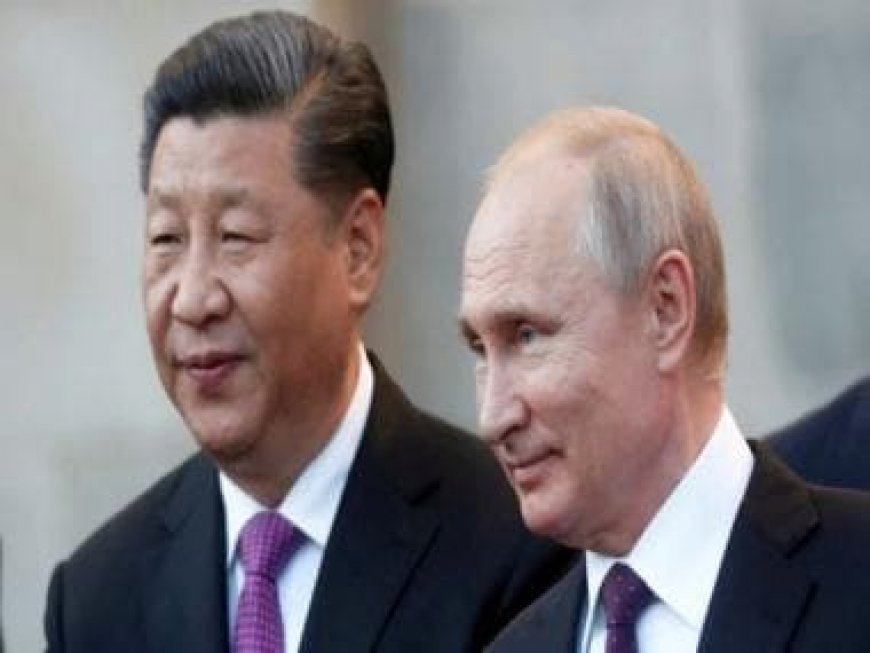
The Israel-Hamas conflict has entered its 11th day. For more than a week, it has overshadowed diplomatic conversations. It will be no different on Tuesday as Russian president Vladimir Putin visits China to meet his counterpart and “dear friend” Xi Jinping.
The Russian leader arrived in Beijing for an infrastructure summit – the Belt and Road Initiative forum that hopes to boost China’s international standing. Representatives from 130 countries will be attending the gathering but Putin is the biggest name on that invitation list. This is his first trip to a major global power since the invasion of Ukraine has left Russia isolated.
We take a look at what the two powerful autocrats will discuss and why this visit could be significant.
Where do Russia, China stand on the Israel-Hamas war?
According to the Russian media, Putin will attend the Belt and Road forum’s official opening reception hosted by Xi and hold talks with leaders of Vietnam, Thailand, Mongolia and Laos on Tuesday.
The Russian leader is the chief guest at the summit. He will speak with Xi on Wednesday and meet the Chinese president for bilateral talks later that day, reports Reuters.
All attention will be on what the two leaders discuss. The Israel-Hamas war will feature prominently during the talks, as Russia and China have in recent days hardened their stand on the ongoing conflict.
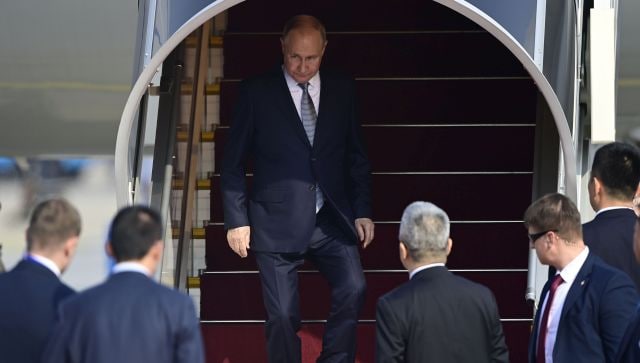
On Friday, Putin likened Israel’s actions in Gaza to the Nazi Germany siege of Leningrad, a comparison that will deeply offend Israel. He said a ground offensive would lead to an “absolutely unacceptable” number of civilian casualties even as he acknowledged that Israel had been subjected to “an attack unprecedented in its cruelty” by Hamas militants.
The Chinese foreign minister said that Israel’s airstrikes on Gaza had gone “beyond the scope of self-defence” and that it “should stop collective punishment of the people of Gaza”.
Russia’s foreign minister Sergei Lavrov arrived in Beijing on Monday before Putin’s visit.
China has historically backed Palestine as did the Soviet Union during the Cold War. But Putin has portrayed himself as an ally of Israel. Israel’s Benjamin Netanyahu has praised the Russian leader for his “particularly friendly attitude” toward the Jewish people during a memoir published during the war, according to a report in The Guardian.
But as the war with Hamas broke out, Putin appears to have forgotten about the friendship.
What can we expect from the Putin, Xi meet?
Two wars in two years have left the world divided. In February 2022, Russia invaded Ukraine just weeks after meeting Xi Jinping in Beijing. The US and the West have sided with Ukraine, slapping sanctions on Russia, which China has condemned.
Now the conflict between Israel and Hamas threatens to grow bigger and bring instability to West Asia. The US is Israel’s biggest ally and once again Russia and China are on the opposite side.
Putin and Xi meet as US president Joe Biden is travelling to Israel to show his support to the country. The meeting in Beijing is expected to emphasise their shared vision for a new world order, which is no longer dominated by the US and its allies.
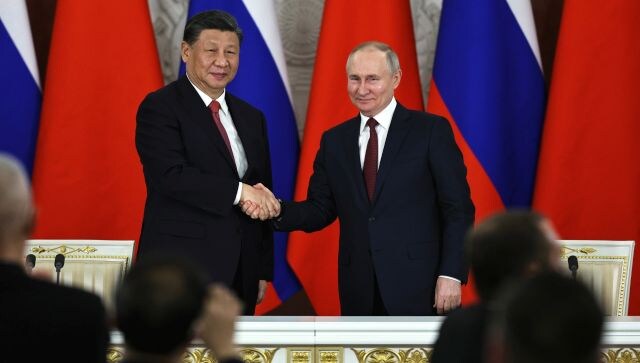
Both Beijing and Moscow have criticised Israel’s actions and called for a ceasefire, in the latest showing of the two powers’ efforts to step up their alternative leadership to that of the US, which affirms Israel’s ongoing right to retaliate, writes CNN’s China writer Simone McCarthy.
It comes as no surprise then that in his first comes on the Israel-Hamas conflict, Putin blamed the US, saying that its policy had failed in West Asia.
In an interview with Chinese state broadcaster CGTN ahead of his visit, the Russian president said that a “multipolar world is taking shape, and the concepts and initiatives put forward by President Xi Jinping are highly relevant and significant”.
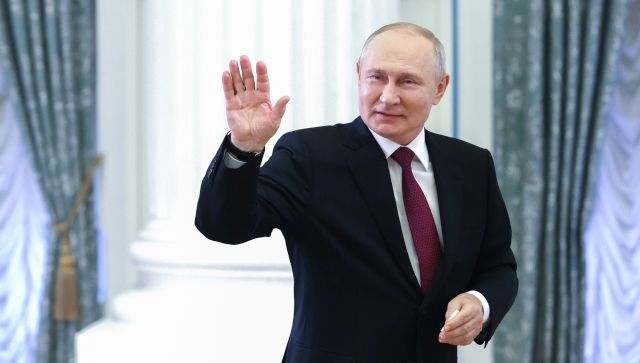
What do Russia, China want?
According to experts, the Israel-Hamas conflict gives Putin the chance to shift the spotlight away from the Ukraine war. He is also looking for support for the conflict, which he finds in China.
Beijing’s one big goal is to extend its influence on the world and continue its efforts to take on the US.
“…almost anything that the US supports, China must be against. Beijing also wishes to be seen as a key supporter of the global south, which includes most Arab countries retaining friendly ties with China. It’s a matter of maintaining those relations by continuing to support the Palestinians,” Dr Yu Jie, a senior research fellow on China at the Chatham House think tank in London was quoted as saying by The Guardian.
The article also says that analysts believe that China is trying to offset concerns in Islamic countries about its treatment of Uyghurs, the Muslim ethnic group, from Xinjiang. China gets a majority of its oil from West Asia and the region is a nexus in Xi’s ambitious Belt and Road initiative.
Can Russia and China broker peace?
Moscow tabled a United Nations Security Council resolution that condemned violence and terrorism against civilians but made no mention of Hama. The UNSC rejected it on Monday night.
On Monday, Putin told Netanyahu that Moscow wanted to help prevent a humanitarian disaster in Gaza. The Russian leader also made a flurry of calls to key regional players, Arab and Iran.
The Kremlin said Putin expressed Russia’s willingness to work towards “ending the Palestinian-Israeli confrontation and achieving a peaceful settlement through political and diplomatic means”.
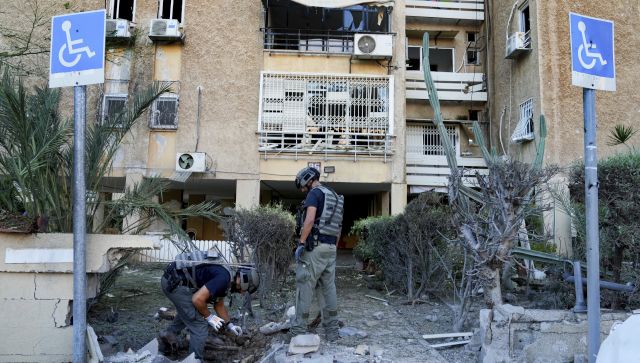
China has also said it would send its envoy to West Asia to encourage talks as it condemned “all acts that harm civilians” but it did not mention Hamas in its statements. Beijing’s special envoy Zhai Jun will visit West Asia this week to push for a ceasefire and peace talks, China’s state broadcaster said. No details have been given about where he will go.
China’s foreign minister Wang Yi spoke with US Secretary of State Antony Blinken, who called on Beijing to use its “influence” in West Asia to push for calm. The Communist nation has a warm relationship with Iran, where the clerical leadership supports both Hamas and Hezbollah, the Lebanese militant group that could open a second front against Israel, reports AFP.
In March, China announced a surprise deal restoring ties between Saudi Arabia and Iran, hinting at Beijing’s desire to be a diplomatic heavyweight in the region. Back then Chinese media hailed Beijing’s rising profile in a region long dominated by Washington. Wang Yi said the country would continue to play a constructive role in handling global “hotspot issues”, according to a Reuters report.
The ongoing conflict will definitely test the limits of that ambition.
With inputs from agencies
What's Your Reaction?



























































